 | MADONNA TO WEAR GAULTIER AGAIN MADONNA is to reunite with French fashion designer JEAN PAUL GAULTIER when she tours this summer (06). The pop superstar has chosen to wear Gaultier's designs on her upcoming tour to promote her latest album CONFESSIONS ON A DANCE FLOOR. Gaultier was the man behind the infamous conical brassiere Madonna wore during her 1990 Blonde Ambition Tour. |
Jimmy Choo has some marvelous shoes for spring and summer 2006. Check out the website!
Fierce!
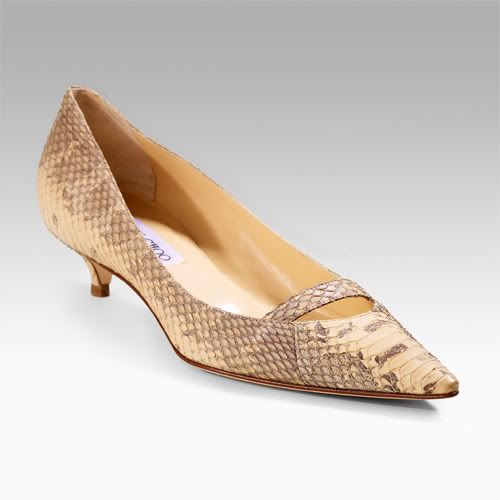
Watersnake Pump
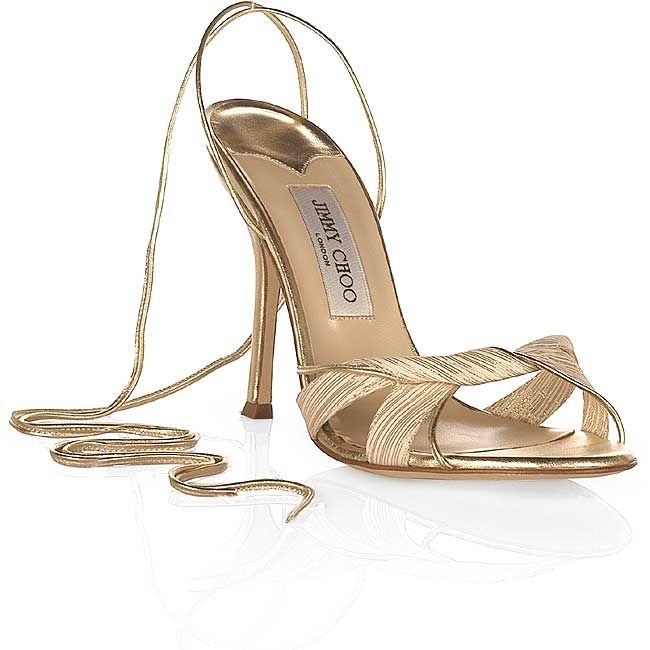
Strappy Sandal
Fashion Monitor Toronto
Nicole Richie has become the new face of Jimmy Choo, the hot Hollywood shoemaker.
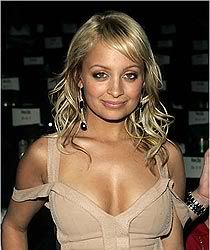
Stuart Weitzman also has some pretty strappy jeweled shoes for spring and summer. Kick your heels up at his site as well. Here are some of the pretties!
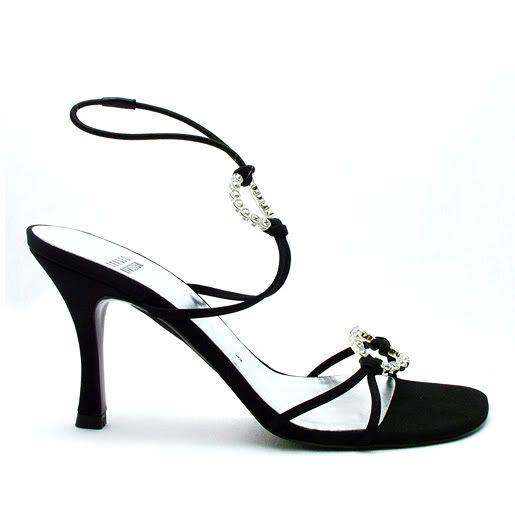
Icerink
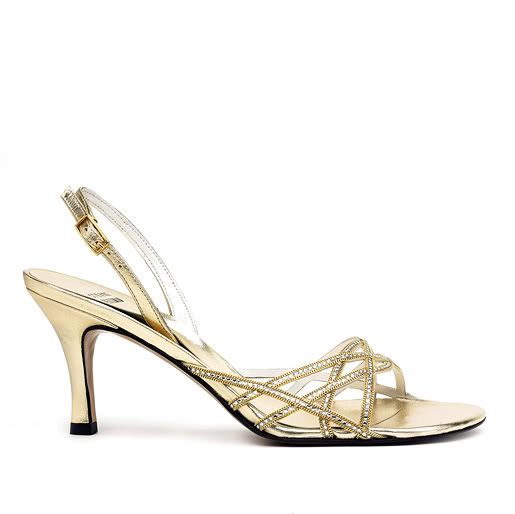
Volts

Four-inch heels are kickin' (if not flyin' across the boardroom) over at Jimmy Choo. The shoe company famous for its stifled in-fighting is making good on its rep.
At the center of the dolled-up drama is Choo's polished head designer, Sandra Choi (niece of the original Jimmy Choo, who ducked out of the company in 1996). Except, well, you might not know of Sandra's efforts at all, given corporate chief Tamara Mellon claims that it is she who's the the chief designer — and entirely responsible for the collections Choo spits out.
Sure, Tamara.
Sandra, we learn, has been mildly okay with this arrangement. She sticks to the creative realm while Tamara reaps in the Bungalow 8 sightings. Crucial to this arrangement as well is co-chief Robert Bensoussan, who handles the business end of things.

But since Sandra's contract expired in December of 2005, she's wised up: She knows she's talented and is keen to the fact that she's worth a shitload more than she's being paid. What to do? Threaten to quit if her compensation doesn't start reflecting her role in the company. And by "role" we mean "holding the entire company together."
And that, folks, would mean disaster for Jimmy Choo.
From inside the derailing Choo Choo train, we learn:
Sandra feels that she has contributed to the success of Jimmy Choo and had her own attorney negotiating a new contract. Robert Bensoussan doesn't want to pay her.There is truly no one who can take on the design of the shoes if Sandra leaves and she is using this for her negotiating basis.
And that's only the catfight portion of this whole arrangement.
What's really at stake are the feelings of majority investor Lion Capital (nee Hicks Muse) — the latest in a long list of owners, which included former Vogue accessories editor Mellon herself, as well as a Phoenix Equity Partners, a division of Equinox Luxury Holdings. In November 2004, Lion Capital extended £101 million to acquire the shoe designer. And yet somehow, after all that money was wired over, they weren't exactly aware of the whole situation.
Also, all of the investors in Lion Capital can not know that a company was bought when one of the main assets contracts where up in December.
Needless to say, this could create a problem for Bensoussan, the business brained half of the CEO duo, who may be searching for investors to keep the head of that little company four inches above water.
The bad blood between Sandra and media hog Mellon isn't helping to diffuse the Choi/Choo stand-off. Our insider spills on Mellon's incessant insistence that Choi receive very little media attention:
There is minimal press on Sandra. This is because Tamara has said that Sandra is not allowed to have press. All press is to go to Tamara.
The fact that we can't find pictures of Choi anywhere? Yeah, that might be evidence of such.
We've learned that both parties are knee-high in the negotiations process, and while Choi is certainly enjoying some of the comfort of her current kicks – such as hanging the fact she is chief boss but knows she is worth more than she's being paid for – she's putting her sateen swathed foot down.
"Jimmy Choo knows they can't afford to loose her," claims our insider. Unfortunately, it seems as though they may not be able to afford to keep her either ... what with all that money being poured into Nicole Richie's endorsement deal.

PORTLAND, Ore - When it comes to athletic shoes, the home court advantage has been with Nike.
Rival Adidas has been like a lightweight going into the ring against a well-conditioned heavyweight, trying from Germany to take on the swoosh without budging its bigger competitor in the critical U.S. market.
But Adidas-Salomon AG has just added some marketing muscle with the acquisition of Reebok International Ltd., boosting the combined U.S. share of No. 2 Adidas and No. 3 Reebok to 21 percent - enough to be a real contender, analysts say.
"This clearly, in our opinion, will lead to a much more serious competitive environment than the industry has been exposed to in probably the last five years," said John Shanley of Susquehanna Financial Group.
Shareholders of Canton, Mass.-based Reebok approved the $3.8 billion takeover by a 98 percent margin Wednesday, a day after Adidas won European Union regulatory approval. No antitrust objections were raised by U.S. regulators.
Reebok said Wednesday the companies now expect to close the deal by Jan. 31, a quick conclusion they hope will end the uncertainty that had hurt sales and orders to retailers. Reebok acknowledged three months ago that uncertainty about integration plans had hurt sales, which declined to $912 million in the third quarter of 2005, from $1 billion in the previous year’s quarter.
Adidas spokesman Jan Runau at company headquarters in Herzogenaurach, Germany, said the Reebok headquarters will remain in Massachusetts while Adidas will maintain its separate U.S. headquarters in Portland.
Adidas plans to keep the brand identities separate as well, and focus on expanding Reebok sales in Europe and Asia "where Reebok is relatively small and Adidas is very strong," Runau said.
He also said the combination should save Adidas about $25 million a year in production and supply chain costs within three years.
Shanley said that Adidas Chairman and CEO Herbert Hainer targeted Reebok as part of a deliberate strategy to confront Nike, based in suburban Beaverton.
Runau, however, said the U.S. market was only one consideration in the overall growth plan for Adidas.
"The North American business was only one of the many strategic rationales behind our decision to acquire Reebok," Runau said.
Shanley said Adidas has been surpassing Nike in both Europe and Japan, and its sales have grown in the United Kingdom, its home base in Germany, and in southern Europe, "markets where Nike is either treading water or losing position."
He noted that in Japan in 2005, "for the first time in well over a decade, Nike lost the market share leadership position to Adidas. That’s a heckuva statement, especially because Japan is an extremely important market for Nike."
The combination of Adidas and Reebok gives them about 28 percent of the international market for athletic footwear, nudging them much closer to the 31 percent share of sales Nike has outside the United States, according to figures by Sporting Goods Intelligence.
But the situation in the U.S. market is much different.
In 2004, Adidas had just 9 percent of the athletic shoe sales in the United States while Nike commanded 36 percent - in the market, that accounts for half of all the athletic shoes sold in the entire world.
David Carter, president of the Sports Business Group, said the merger can be viewed in two ways: As a challenge to Nike, or an admission by Adidas and Reebok they could never overtake Nike alone despite years of trying.
Either way, Carter said, Nike is likely to respond with the kind of marketing skills that have made it the largest athletic shoe and clothing manufacturer in the world.
"They’ve seen lot of people come and go, and seen the industry shake out many times," Carter said of Nike. "And every time the industry shakes out they have emerged smarter and stronger."
Nike spokesman Alan Marks declined to comment, other than to repeat what the company has said in the past.
"Our comments have always been that we’re following our own game plan," Marks said.
The Nike "swoosh" logo is instantly recognized around the globe, and its stable of celebrity athlete endorsements from superstars such as Michael Jordan and Tiger Woods have helped the company build an enduring image, Carter said.
The Adidas three-stripe logo is familiar but not as closely tied to marquee names, he said.
"For a generation of consumers who have known Nike for being nothing less than their brand, it’s their generation’s Coca-Cola, burned into their consciousness, burned into an entire generation," Carter said. "The same can’t be said for Adidas."
Erich Stamminger, president and CEO of the Adidas brand, has said the German company has no plans to expand its own stable of celebrity athletes, which includes soccer star David Beckham.
But that strategy may change as Adidas begins to compete for more of the U.S. market, said Ravi Dhar, professor of marketing and co-director of the Center for Customer Insights at the Yale University School of Management.
"Nike has a tremendous amount of brand awareness and brand strength," Dhar said. "But Adidas has a very strong history, too. It’s what they call a ‘heritage brand’ - it’s to the history of soccer what Nike is to the history of running."
The acquisition of Reebok could allow Adidas to divide and conquer the two major market segments for athletic shoes and clothing - style and performance, Dhar said.
Reebok could focus on the style segment while Adidas could focus more on performance shoes and equipment to expand its market share with a broader offering of products, he said.
And that could be a major factor in the competition for the U.S. market, where Reebok had outsold Adidas.
"Where Adidas might have trouble getting retail shelf space because they sell less in the United States, now they can ride Reebok’s coattails," Dhar said.
